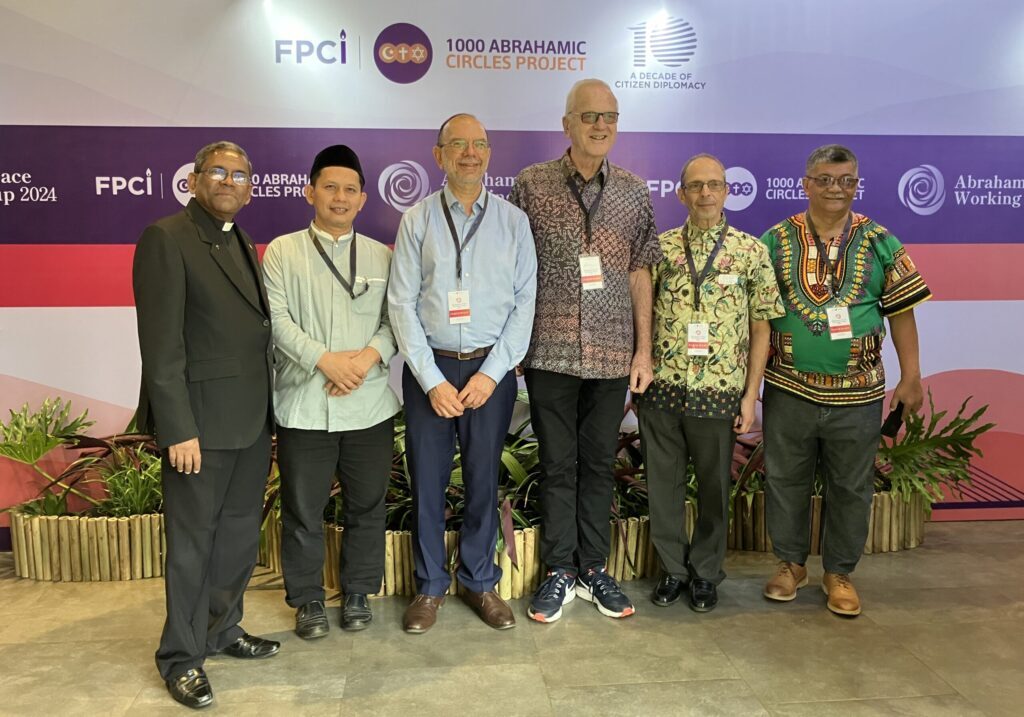Australia/Israel Review
Editorial: Terror TV and the Public Interest
Aug 31, 2009 | Colin Rubenstein
Colin Rubenstein
The Australian Media and Communications Authority (ACMA) opened itself up to deserved criticism in August when it apparently gave its seal of approval to al-Manar, Hezbollah’s television station.
The station is available for those with a satellite dish, thanks to an Indonesian satellite company that broadcasts it throughout Asia and Australia.
ACMA took it upon itself to determine whether the station breaches ACMA’s anti-terrorism regulations. It watched just nine days of television and, in that time, chose to produce summary translations of only 22 clips – some of which were advertisements, lasting seconds. It then looked in depth at only two programs.
The ACMA decision made headlines around the world because Australia seemed to have gone on record saying that al-Manar, a station that spews hatred, incites violence and is owned and operated by a terrorist organisation, is actually fine. This is very much against the international trend, where al-Manar has been banned or made unavailable by legal means in most of the Western world – and for good reason.
Al-Manar programs have portrayed rabbis killing Christian children for their blood, in order to bake unleavened bread, matzot, for Passover. It has featured speakers urging Lebanese, Palestinians and other Muslims to kill Jews and to become suicide bombers. It has urged mothers to prepare their sons for martyrdom.
ACMA’s current anti-terrorism regulations forbid television stations broadcasting in Australia to attempt to “directly recruit” terrorists, or solicit funds for terrorist organisations. However, it seems ACMA interprets directly recruiting terrorists as providing contact details or training materials for a terrorist organisation. This narrow interpretation apparently allows a television station to strongly encourage its viewers to become terrorists as long as it falls short of actually providing phone numbers.
Likewise, the injunction against soliciting funds for a terrorist organisation seems to be limited to prohibiting the supply of bank account details.
For reasons that remain unclear, ACMA did not engage with the raw racism of al-Manar in its self-initiated inquiry. But it should have done so. Australia prohibits distributing material that incites violence or disseminates racial hatred. Likewise, television stations that do the same should be unacceptable.
Al-Manar is banned or has been made legally unavailable throughout North and South America, as well as in the European Union.
In the EU, it is banned because it contravenes Europe’s racial hatred laws.
The United States took a different tack. Because al-Manar is owned and operated by Hezbollah, which the US designates as a terrorist organisation, al-Manar was itself designated a terrorist entity.
This US ban on Hezbollah in its entirety is firmly based in reality. Both Hezbollah leaders and experts on the organisation agree that dividing the group into external and internal, or political and military wings is artificial and does not reflect how Hezbollah actually operates.
Nonetheless, here, both the current and previous Australian governments have made an untenable distinction between ‘internal’ Hezbollah and ‘external’ Hezbollah – the latter of which Australia calls terrorist, the former of which we call a “sanctioned ‘resistance group.’”
‘Internal’ Hezbollah is a terrorist organisation, even if the Australian government wishes to deny it. It has fired thousands of rockets at Israeli civilians, bombed foreign embassies in Lebanon as well as kidnapped and held for ransom foreign civilians in Lebanon. In May 2008, Hezbollah turned its guns on Lebanese civilians, briefly taking over Beirut, after the Lebanese government attempted to dismantle an illegal telecommunications network established by Hezbollah in Lebanon’s south. A political party with a militia it uses to ensure it gets its way is only a “sanctioned resistance group” in Lebanon due to fear. Moreover, personnel from the internal military wing participate in external terrorism and vice-versa.
In any case, it would not seem to require proscribing all of Hezbollah to prohibit al-Manar in Australia.
Firstly, ACMA’s own report indicated al-Manar was likely to be in breach of ACMA regulations, even if ACMA didn’t pick up on the significance of the segment it uncovered.
As previously mentioned, the ACMA regulations prohibit a television station soliciting funds for a terrorist organisation. During the single week that ACMA monitored al-Manar, it came across an advertisement that, according to the ACMA report, was a “solicitation for funds for the al Emdad Charity.”
Why ACMA did not bother to determine the nature of al-Emdad remains unclear. Al-Emdad is a Hezbollah charity. Not only does it carry the Hezbollah logo front and centre on its website, it is quite open about raising money for the terrorist group.
Moreover, under Australian law – over and above the ACMA regulations – it is illegal to raise money for or donate money to Hezbollah. That is, all of Hezbollah, not just its external wing.
In addition, ACMA regulations make clear it considers as a “listed terrorist” both those organisations proscribed by Australia but also by the UN. And the UN lists the entire Hezbollah organisation. Australia is obligated, under UN Security Council Resolution 1373, to freeze the assets of terrorist organisations. Al-Manar is most definitely an asset of Hezbollah and should not be allowed to operate here given our obligations under 1373.
It is hard to conceive that any responsible Australian authority believes it is acceptable that a television station that glorifies violence, encourages people to commit terrorism and give money for terrorist purposes and spreads gross racial hatred should be allowed to broadcast in Australia. And yet, that’s just what ACMA has effectively done. ACMA and/or the Australian Government need to go back to the drawing board and find or construct a legal framework to achieve the obvious public interest with respect to any terrorist television – preventing transmissions in Australia which encourage vulnerable members of the Australian community to commit or support terrorism.
Tags: Australasia, Indonesia






